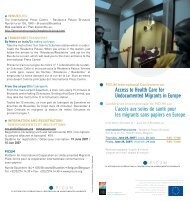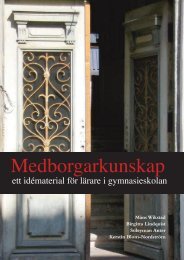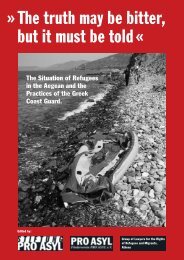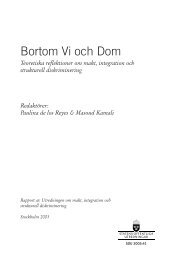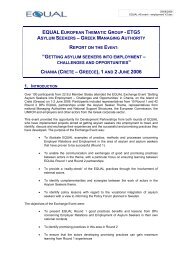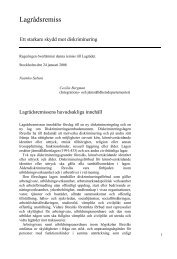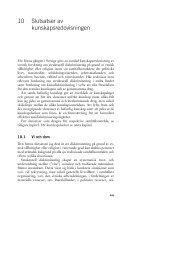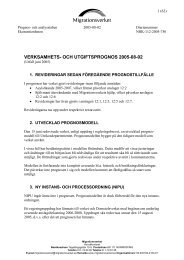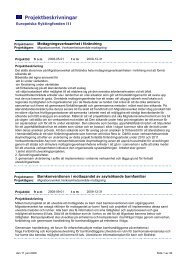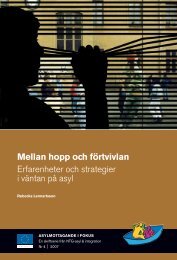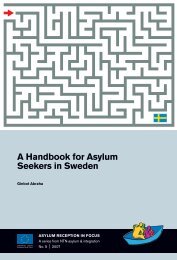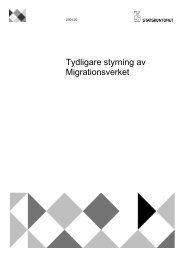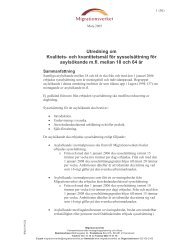Rapport Integration 2002
Rapport Integration 2002
Rapport Integration 2002
Create successful ePaper yourself
Turn your PDF publications into a flip-book with our unique Google optimized e-Paper software.
Checks on the health of various refugee groups show<br />
that as many as one refugee in three found it hard to<br />
take part in their introduction programmes due to<br />
ill-health connected with their war experiences, with<br />
their experiences as refugees or even with their situation<br />
once they had arrived in Sweden.<br />
A number of instructive examples in the <strong>2002</strong> <strong>Integration</strong><br />
Report show the importance of basing introductions<br />
on the needs and wishes of the individual.<br />
When such an approach is adopted, groups can be<br />
reached that do not currently take part in introduction<br />
programmes. In a number of the projects for<br />
lowly educated women and illiterate persons described<br />
in the report, the initiatives come from the participants<br />
themselves, based in this case on the needs of<br />
individual women, rather than from an outside project<br />
manager with ideas about the special problems<br />
faced by women. Many of the measures included in<br />
introduction programmes are still decided on from<br />
above and are less often based on the resources and<br />
capabilities of the individual.<br />
Children and young people miss out on<br />
introductions<br />
Introduction programmes often lack a perspective<br />
on children and young people, despite explicit<br />
declarations on the part of policymakers that refugee<br />
children and young people must also be offered programme<br />
measures tailored to their individual needs.<br />
Studies show that neither children nor young people<br />
are given individual plans of action. Their introductions<br />
are confined to registration with a preschool<br />
or school and the pupils in some cases are placed in<br />
what are termed preparatory classes.<br />
The fact that immigrants are over-represented<br />
among pupils who leave compulsory school without<br />
a full set of grades may partly be due to shortcomings<br />
in introduction programmes, particularly in the case<br />
of refugee children forced to interrupt their schooling<br />
in their native country.<br />
Many new arrivals get stuck in the educational<br />
system<br />
Many new immigrants move on from Swedish for<br />
Immigrants courses to other adult education programmes.<br />
In the 1999/2000 academic year, two thirds<br />
of the students in Grundvux (adult education at<br />
compulsory school level) were persons born abroad.<br />
In other adult education programmes, the proportion<br />
was less than 20 per cent. Research in this field<br />
is limited, but there are signs that adult education is<br />
used as a place to deposit people who are expected to<br />
have difficulty finding employment.<br />
242 RAPPORT INTEGRATION <strong>2002</strong>




